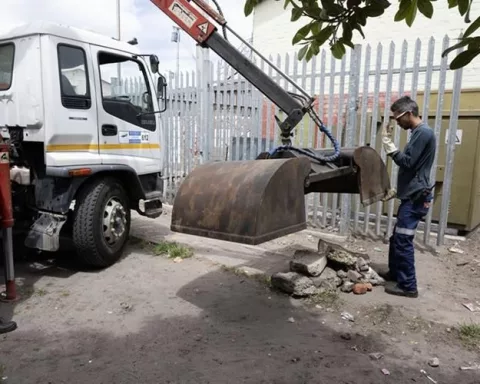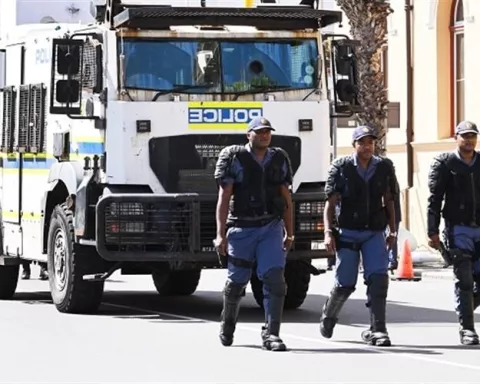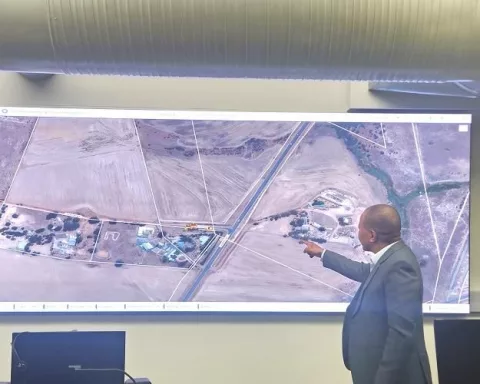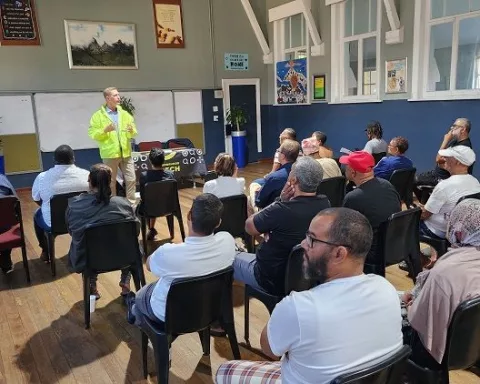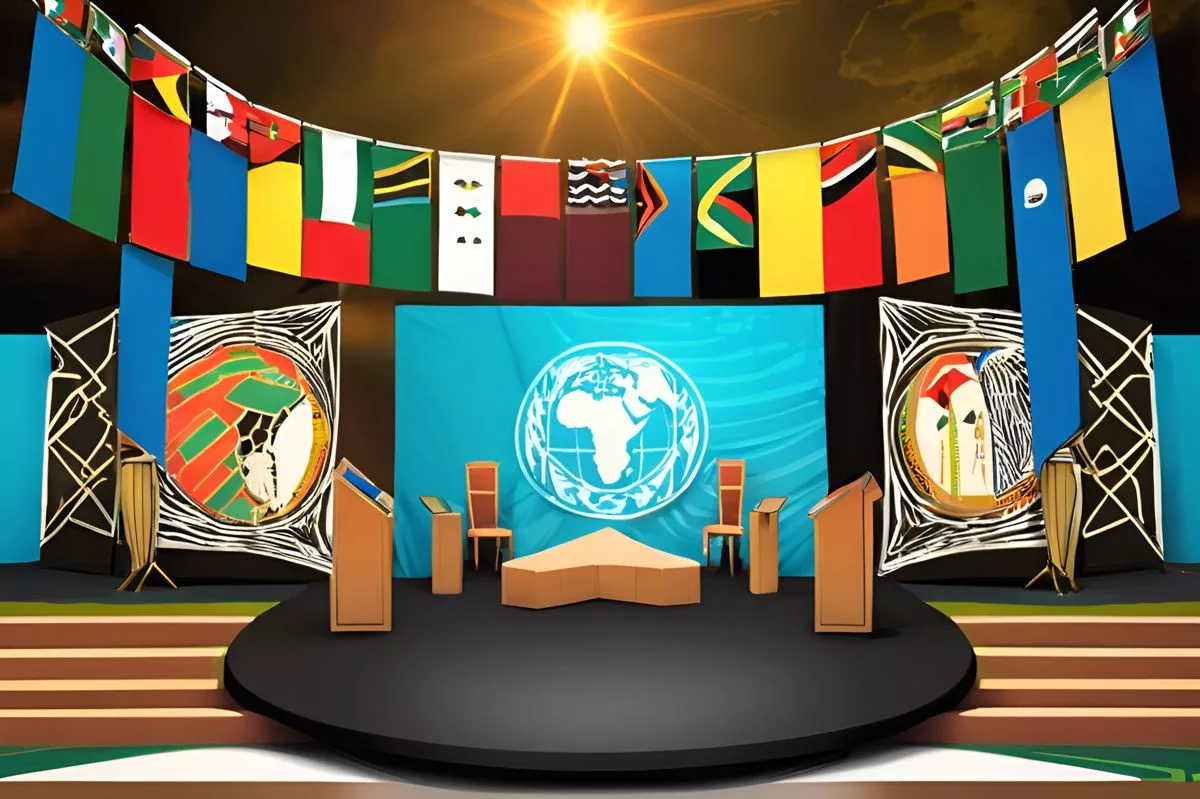Ekurhuleni is stepping into a brighter future with a new plan to make the community safer and stronger. The Cooperation Agreement connects local government, law enforcement, and residents, aiming to tackle crime together. With smart technology like surveillance and data analysis, they are focusing on specific problems in different neighborhoods, bringing hope back to the community. As people unite to reclaim their streets, this effort promises not just to reduce crime but to build trust and a sense of belonging among everyone in Ekurhuleni. Together, they are creating a safe haven where dreams can thrive.
How is Ekurhuleni enhancing public safety and community trust?
Ekurhuleni is enhancing public safety through a Cooperation Agreement that fosters collaboration among government, law enforcement, and communities. This initiative focuses on strategic, zonal policing and embraces technology like surveillance and data analytics to address specific crime challenges, thus rebuilding community trust.
A Landmark Agreement for Unity and Safety
In the vibrant landscape of Ekurhuleni, where urban energy meets lush greenery, a significant event has unfolded that promises to reshape community dynamics. The signing of the Cooperation Agreement marks a foundational step towards enhancing public safety and rebuilding community trust—vital elements for any thriving society. Minister Senzo Mchunu, addressing an audience of dignitaries, officials, and community members, set the tone with a message of hope and determination. This was far more than a mere bureaucratic procedure; it signaled a united front against the pervasive crime threatening the region.
To grasp the full impact of this agreement, it’s essential to consider South Africa’s constitutional commitment to safety and security. The Constitution firmly establishes these rights, deeply resonating with the nation’s history and aspirations. The document’s framers, inspired by past struggles for justice, envisioned a society unshackled by fear, where citizens could freely pursue their potential. Minister Mchunu’s address mirrored this vision, mixing urgency with optimism. The Cooperation Agreement is a bold step toward fulfilling this constitutional promise, aiming to ensure safety and security for every individual.
Ekurhuleni, a microcosm of South Africa’s diversity and potential, faces daunting crime rates. Statistics paint a grim picture, with the district ranking alarmingly high in both general and contact crimes. Areas like Tembisa and Ivory Park feature prominently in national crime reports, highlighting the significant challenges law enforcement must tackle. Yet, the statistics tell only part of the story. Beneath the numbers lies a community longing for normalcy—a return to times when safety was an expectation, not a luxury.
Community Resilience and Collective Action
Despite the challenging backdrop, the resilience within Ekurhuleni’s communities stands out. Stories of ordinary citizens partnering with law enforcement to reclaim their neighborhoods are both inspiring and instructive. These efforts echo historical social movements, where collective action drove meaningful change. Just as communities once united to dismantle oppressive systems, today they come together to combat the scourge of modern crime. This camaraderie, born of shared experiences and mutual reliance, is a powerful force in the fight against crime.
In addressing these challenges, the government has adopted a proactive stance. Bold initiatives target crime effectively, as demonstrated by several successful operations against organized crime syndicates. For instance, Operation Shanela has led to the arrest of individuals involved in serious offenses like human trafficking, showcasing the police force’s determination. These successes mark just the beginning, serving as potent reminders that victory is within reach, reigniting a sense of purpose among both law enforcement officers and citizens.
However, traditional policing methods alone cannot secure victory in this battle. As criminals employ increasingly sophisticated tactics, the state must embrace technological advancements. The future of crime fighting hinges on innovation—surveillance technologies, data analytics, and smart infrastructure are no longer luxuries but necessities. Integrating these tools heralds a new chapter in public safety, where technology enhances human effort and intelligence. As drones and facial recognition technology become more prevalent, they promise to revolutionize not only crime prevention but also the urban landscape itself.
Strategic Focus and Targeted Solutions
As these technological tools are deployed, community cooperation remains crucial. The essence of the Cooperation Agreement lies in its focus on collaboration among various stakeholders: government, law enforcement, and the community. Ekurhuleni will benefit from a zonal policing strategy—each zone tailored to address specific crime concerns. This strategic approach ensures that the unique challenges of each area receive targeted solutions, maximizing both efficiency and impact.
In Germiston, for example, efforts will concentrate on addressing illegal building occupations, while Primrose will tackle illicit mining activities. This bespoke approach not only underscores the government’s commitment to resolving specific issues but also highlights its adaptability to the nuanced realities of crime in different areas. Strategies informed by both data and community input hold the potential to restore order and safety in a meaningful and sustained manner.
The broader context of this initiative cannot be overlooked. In a world increasingly defined by volatility and uncertainty, safety becomes a precious commodity. It is the foundation upon which economic prosperity and social cohesion rest. For Ekurhuleni’s businesses and residents, a secure environment is not merely a desire—it is a prerequisite for growth and development. When communities feel safe, they thrive; as fear dissipates, innovation and creativity flourish.
A Unified Vision for a Secure Future
The arduous journey toward securing Ekurhuleni serves as a microcosm of South Africa’s broader narrative—one of resilience, determination, and hope. As the sun sets over the city, casting a warm glow over its bustling streets and tranquil parks, one can envision a future where safety and peace reign. This vision, though ambitious, is attainable through unwavering commitment and concerted action.
Minister Senzo Mchunu’s address during the Cooperation Agreement signing underscores that safety is a collective endeavor. The spirit of cooperation, the embrace of new technologies, and the relentless pursuit of justice can indeed turn the tide against crime. In the heart of Ekurhuleni, a new chapter begins—one that promises not just safety but the revitalization of community life, breathing new hope into the dreams of its residents.
“`markdown
FAQ
How is Ekurhuleni enhancing public safety and community trust?
Ekurhuleni is enhancing public safety through a Cooperation Agreement that fosters collaboration among government, law enforcement, and communities. This initiative focuses on strategic, zonal policing and embraces technology like surveillance and data analytics to address specific crime challenges, thus rebuilding community trust.
What does the Cooperation Agreement entail?
The Cooperation Agreement is a landmark initiative that connects local government, law enforcement, and residents to tackle crime collaboratively. It emphasizes community involvement, smart technology usage, and a strategic approach tailored to the unique needs of different neighborhoods, aiming to foster a safer and more trusting environment.
How are technological advancements being utilized in crime prevention?
Ekurhuleni is implementing various technological tools, including surveillance technologies, data analytics, drones, and facial recognition. These innovations are designed to enhance traditional policing methods, enabling law enforcement to effectively address and prevent crime in a rapidly evolving landscape.
What specific crime issues will be addressed in different areas of Ekurhuleni?
Ekurhuleni’s zonal policing strategy will tailor solutions to specific crime issues in different neighborhoods. For instance, Germiston will focus on illegal building occupations, while Primrose will address illicit mining activities. This approach ensures that each area receives targeted and effective interventions based on its unique challenges.
What role do residents play in enhancing community safety?
Residents are encouraged to actively participate in reclaiming their neighborhoods by collaborating with law enforcement and local government. Their involvement is crucial in sharing information, reporting suspicious activities, and fostering a sense of community, which strengthens trust and safety.
Why is community trust important in crime prevention?
Community trust is vital for effective crime prevention as it encourages open communication between residents and law enforcement. When trust is established, community members are more likely to report crimes, cooperate with investigations, and engage in proactive measures to enhance safety, leading to a stronger, more resilient community.
“`


